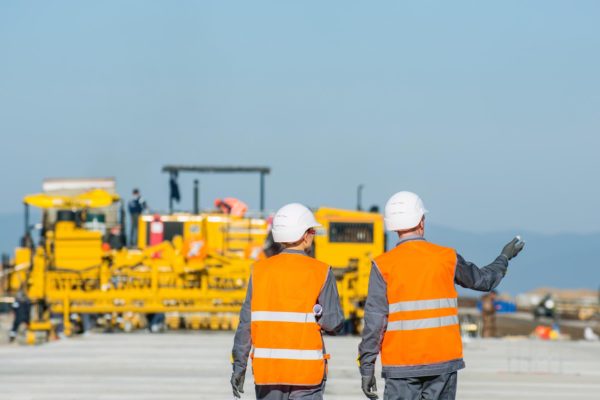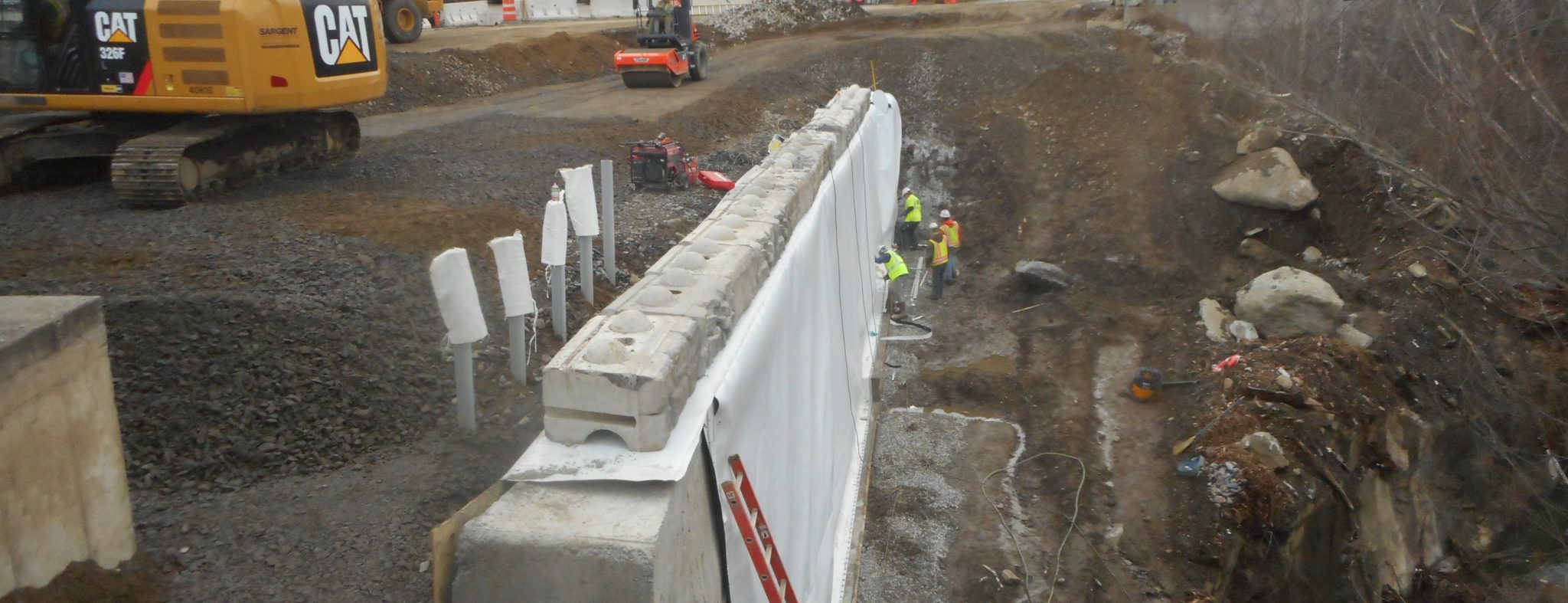The Function of a Consulting Engineer in Ensuring Safe and Efficient Structure Practices
Recognizing the Essential Duty of the Geotechnical Sector in Modern Construction Projects and Framework Development
The geotechnical market is a foundation of contemporary building and construction and framework development, giving important understandings into dirt behavior that straight influence job outcomes. With innovative soil assessments and innovative engineering remedies, geotechnical specialists not only make sure architectural honesty yet likewise address sustainability concerns in the middle of progressing environmental criteria.
Significance of Soil Assessment
Dirt analysis plays an essential duty in the geotechnical industry, functioning as the structure for educated decision-making in building jobs. Accurate dirt analysis is important for identifying the viability of a site for numerous types of frameworks, including domestic homes, business structures, and bridges. By assessing dirt composition, toughness, thickness, and moisture content, designers can expect potential obstacles and reduce threats associated with ground instability, erosion, and negotiation.
The evaluation procedure usually includes a collection of examinations and observations that supply essential info regarding the subsurface conditions. This data notifies the design and building and construction processes, making certain that frameworks are improved strong ground with sufficient assistance. Moreover, understanding the soil profile enables engineers to pick appropriate construction methods and products, maximizing resource usage and lessening costs.
In enhancement to ensuring structural integrity, dirt analysis adds to ecological sustainability. By determining possible contamination or unfavorable impacts on surrounding environments, designers can apply approaches to safeguard these natural resources. Generally, comprehensive soil assessment is crucial in the geotechnical area, underpinning the safety, performance, and environmental responsibility of building and construction tasks.
Key Geotechnical Techniques
A variety of vital geotechnical techniques are employed to improve the security and analyze and efficiency of building sites. One foundational technique is soil tasting and testing, which allows engineers to figure out the physical and chemical buildings of the ground. This information is critical for making notified decisions pertaining to structure style and construction approaches.
Another important strategy is site characterization, which involves the in-depth assessment of soil and rock problems via techniques such as borehole drilling and in-situ screening. Techniques like Requirement Penetration Examinations (SPT) and Cone Penetration Examinations (CPT) give important information on dirt stamina and stratigraphy.
Ground improvement methods, such as soil stabilization and grouting, are also crucial in improving the load-bearing capacity of weak soils. These approaches can alleviate settlement and enhance overall website conditions.
Furthermore, incline security analysis is critical for identifying prospective landslide dangers and making sure the security of excavations. This evaluation commonly utilizes numerical modeling and limitation balance approaches to anticipate soil actions under numerous conditions.
Incorporating these geotechnical strategies right into building and construction planning not only optimizes project end results however additionally ensures the long-lasting sustainability of framework advancement.
Effect On Construction Safety And Security

Moreover, reliable geotechnical design involves implementing reduction methods for identified dangers. This might consist of dirt stabilization methods, retaining structures, or water drainage systems to reduce hydrostatic pressure. By addressing these aspects, building and construction teams can decrease the chance of crashes and boost employee safety.
Furthermore, continuous surveillance of site conditions is essential throughout building. Geotechnical instruments can offer real-time data concerning ground activity and security, permitting prompt interventions when essential.
Essentially, the geotechnical market plays a crucial role in safeguarding building jobs. By prioritizing ground integrity and utilizing extensive analysis methods, the geotechnical sector not just safeguards the workforce but likewise adds to the long life and integrity of built framework.
Sustainability in Geotechnical Practices

Furthermore, geotechnical engineers are now utilizing innovative modern technologies, such as geosynthetics, which boost dirt stability while decreasing the volume of product called for. This not just preserves sources however also results in less waste generation (engineer of record). The assimilation of lasting layout principles right into geotechnical engineering motivates the usage of renewable energy resources in building and construction procedures, better lowering carbon exhausts
Furthermore, comprehensive website assessments are vital for identifying prospective ecological impacts prior to construction begins. By conducting these evaluations, geotechnical specialists can develop methods that mitigate negative effects, ensuring conformity with environmental regulations. In general, the geo tech engineer emphasis on sustainability within geotechnical techniques not just adds to the durability and strength of framework however likewise promotes a responsible technique to land and resource administration. This commitment is vital for fostering lasting growth in the modern-day construction landscape.
Future Trends in Geotechnical Engineering
Advancement is driving the future of geotechnical engineering, as arising innovations and methods improve the market. The assimilation of advanced data analytics and expert system is readied to transform site examination and threat assessment, making it possible for designers to make more enlightened decisions based upon real-time data. The usage of geosynthetic materials is gaining grip, using lasting services that improve dirt stability and lower environmental impact - tailings engineer.
One more considerable fad is the fostering of automated and robotic systems for monitoring and building and construction procedures. These innovations not only boost accuracy but additionally improve security by lessening human participation in hazardous environments. Furthermore, the application of Building Information Modeling (BIM) in geotechnical layout promotes enhanced collaboration amongst stakeholders, enhancing task shipment and lowering prices.
As climate modification poses brand-new obstacles, the industry is progressively concentrating on resilience and flexibility in style methods, making sure framework can hold up against severe weather condition events. The recurring trend toward sustainability will certainly drive innovation in green products and techniques, aligning geotechnical engineering with broader ecological objectives. Jointly, these fads will form an extra reliable, lasting, and resilient geotechnical landscape for future tasks.
Final Thought

The geotechnical market is a keystone of modern-day building and construction and infrastructure advancement, giving important insights right into soil habits that directly affect project results. consulting engineer.Dirt analysis plays an important duty in the geotechnical industry, offering as the structure for informed decision-making in building and construction tasks. On the whole, thorough soil evaluation is crucial in the geotechnical field, underpinning the safety, effectiveness, and ecological responsibility of building projects
Building safety is significantly influenced by geotechnical practices, as the stability and integrity of the ground directly affect the overall security of a building and construction website.In verdict, the geotechnical industry is vital in modern building and framework growth, providing vital assessments that ensure architectural honesty and safety.